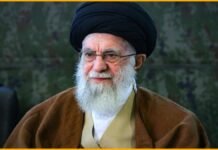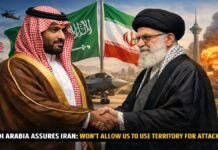
Key Points
- India and Pakistan both announce international delegations to highlight their positions on cross-border terrorism.
- India’s team includes MPs from multiple parties and ex-diplomats, aiming to garner global support.
- Pakistan’s delegation, led by Bilawal Bhutto-Zardari, will visit key Western capitals.
- Diplomatic moves follow recent military escalation and ongoing tensions over Kashmir and terrorism.
- Talks between the two nations remain stalled except on the issue of terrorism.
Islamabad/New Delhi: In a dramatic escalation of diplomatic efforts, both India and Pakistan have announced the dispatch of high-level delegations to major world capitals, aiming to present their respective stances on cross-border terrorism and recent military actions.
India’s Multi-Party Delegation to Highlight Terror Threat
Just hours after India’s government revealed plans to send a seven-member team to key cities across North America, Europe, and West Asia, Pakistan responded with its own international diplomatic initiative. The Indian delegation, composed of MPs from various prominent parties, including Shashi Tharoor (Congress), Ravi Shankar Prasad (BJP), Ghulam Nabi Azad (DPAP), and Asaduddin Owaisi (AIMIM), will be joined by former diplomats and senior leaders.
The primary goal: to expose Pakistan-sponsored terrorism on the global stage, clarify the legitimacy of India’s recent military actions, and secure concrete international backing.
Pakistan’s Countermove: Bhutto-Zardari to Lead Delegation
Not to be outdone, Pakistan announced that former Foreign Minister Bilawal Bhutto-Zardari will head a delegation to the US, UK, Belgium, France, and Russia. The team, as confirmed by Bhutto-Zardari on social media, includes ex-Deputy Foreign Minister Hina Rabbani Khar, former Defense Minister Khurram Dastagir Khan, ex-Foreign Secretary Jalil Abbas Jilani, and Tariq Fatmi, who may lead talks in Russia.
Bhutto-Zardari stated, “I have accepted the Prime Minister’s request and am committed to serving Pakistan in this difficult time.”
Recent Escalation and Stalled Talks
These diplomatic offensives come on the heels of a sharp military escalation. On May 7, India launched precision strikes on nine terrorist targets, leading to four days of heightened tension and a war-like atmosphere. An informal ceasefire was reached on May 10, but the situation remains fragile.
Pakistan has recently expressed a willingness to resume talks with India on issues such as Kashmir, the Indus Water Treaty, and terrorism. However, Indian Foreign Minister S Jaishankar has categorically stated that dialogue will only occur on the topic of terrorism. He further clarified that discussions on the Indus Water Treaty are suspended until Pakistan ceases its support for terrorism, and the only Kashmir-related issue on the table is the return of Pakistan-occupied territories to India.
What’s Next?
As both countries prepare to send their delegations abroad, DGMO-level talks are scheduled for May 18, marking another attempt to ease tensions. The world will be watching closely as India and Pakistan seek to win international support for their respective narratives in this ongoing conflict.





















































